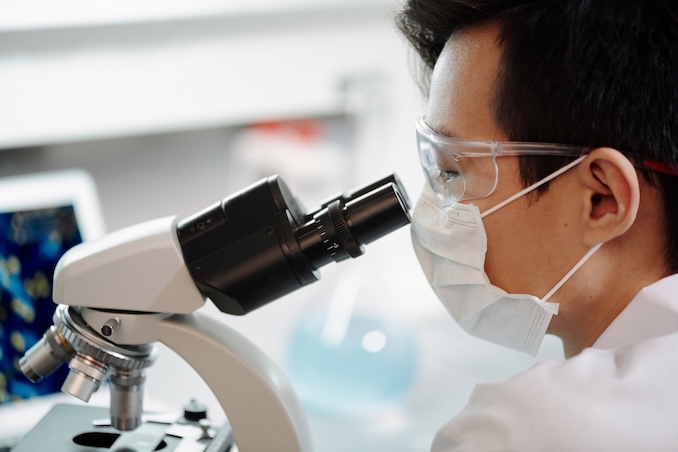Specialized oncology centres in developed countries offer dendritic cell therapy for cancer to their patients. This type of immunotherapy has been proven, first in clinical research and then in clinical practice, to be highly effective in both early and advanced stages of cancer. This personalized treatment is well tolerated and does not cause any severe toxic reactions. Like other immunotherapeutic approaches, the dendritic cell vaccine works through the activation of the anti-tumour immune response.

General principle: How does it work?
Dendritic cells (DCs) are antigen-presenting cells. They are the first to encounter an antigen, whether it is an infection, a tumour, or any other source of foreign proteins.
The DCs do not attack the target themselves. They simply study it. The DCs absorb the antigen and break it down into fragments. In their natural form, these protein molecules are too large for T-cells to recognize. So the DCs present the antigen fragments to other immune cells. Now they can recognize and attack the target.
DC activity is reduced due to cancer. In addition, the tumour has mechanisms that allow it to pretend to be normal tissue. As a result, the anti-tumour response is weak, and cancer cells are not particularly vulnerable to immune system attacks.
But everything changes when a dendritic cell vaccine comes into play. Physicians take cells from a person’s blood, train them to fight the tumour, and return them to the body. The DCs give T-cells information about antigens, and they begin to attack cancer cells more actively.
Step-by-step process of dendritic cell therapy
Doctors take blood from a person and isolate monocytes from it. The monocytes are then converted into dendritic cells.
Subsequently, their maturation must be achieved. Dendritic cells are treated with tumour antigens. Specialists can use standard sets of antigens, but the antigens of the tumour developing in the patient’s body are better suited for this purpose. In order to obtain tumour tissue, a biopsy is performed, either classical or liquid biopsy. It is also possible to use surgical material when dendritic cells are used for adjuvant (postoperative) cancer therapy.
After the vaccine is made (the process takes about 7 days), one dose is given to the person right away. The rest of the dendritic cells are frozen to be given later, if needed. One injection is often enough to build up anti-tumour immunity.
Who may be a candidate for dendritic cell vaccination?
Dendritic cell vaccines have been developed for the treatment of many types of cancer, including prostate cancer, breast cancer, pancreatic cancer, thyroid cancer, colon cancer, lung cancer, melanoma, and other oncological diseases.
Dendritic cells are mainly used:
- In early stages of cancer to prevent recurrence
- In advanced cancer with metastasis
- In combination with standard cancer therapies to increase their effectiveness
- In combination with other immunotherapy approaches
Given their high potential and excellent treatment outcomes, physicians continue to explore other options for dendritic cell vaccines in clinical trials.
Treatment results
Dendritic cell therapy is a systemic treatment method. After vaccination, the patient’s immune system attacks all tumours and cancer cells, resulting in a lower tumour burden. The volume of metastases decreases. As a result, cancer control improves, and human life expectancy increases.
The advantage of dendritic cell therapy is that it can be combined with most other cancer treatments without increasing toxicity. A person may experience brief flu-like reactions after the injection, but overall the therapy is much better tolerated than chemotherapy and other toxic cancer treatments.
You are welcome to use the Booking Health service if you want to undergo dendritic cell treatment abroad. On the website, you can choose the most suitable clinic, find out prices, and make an appointment for your preferred dates. Please leave your request on the website to get a consultation with a medical tourism specialist. The Booking Health team will select a good clinic for you and take care of the organization of your trip abroad.
